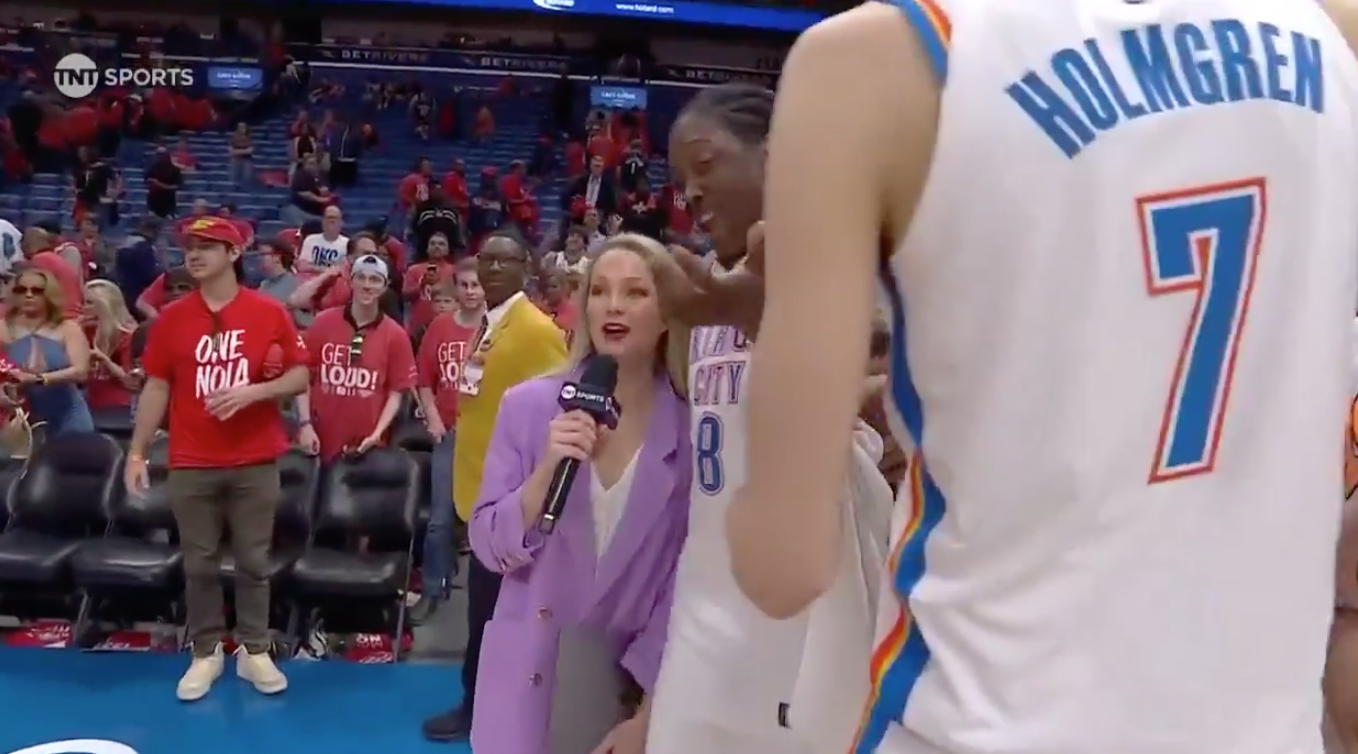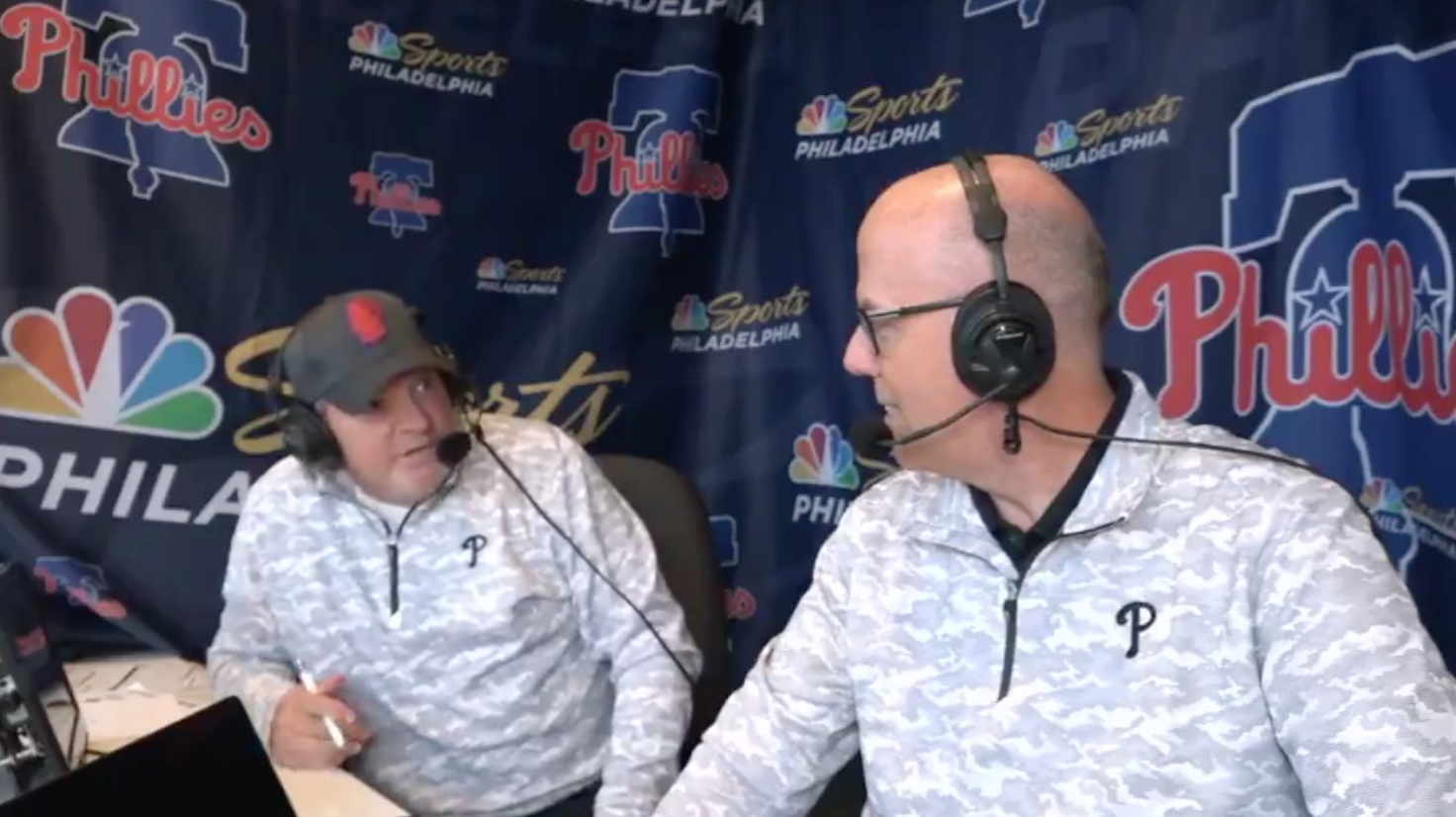The impacts of Michael Lewis’ 2003 bestseller Moneyball on sports are clear. Moneyball helped boost an already-ongoing baseball revolution based on statistical analysis (or, more accurately, based on analysis of different statistics than traditional ones such as batting average and RBIs) and paved the way for further statistical analysis in other sports. The book, and the 2011 Brad Pitt-starring movie based on it, also spawned a revolution in media members using those new statistics: that started with incredible backlash from many, but grew to a point where statistics such as on-base percentage, wins above replacement, fielding-independent pitching and more are regularly shown and discussed on broadcasts (although still sometimes with pushback).
But a maybe-underexplored element of Moneyball is the impact all that discussion had on its author. On that front, Lewis (seen at left above) spoke to Jon Greenberg of The Athletic this week ahead of Saturday’s 20th anniversary of Moneyball‘s publication. And he said the endless discussion of the book and advanced statistics in those first few years after its publication had him muting baseball games. He particularly singled out ESPN’s Sunday Night Baseball, which from 1990 to 2010 featured one of the most prominent critics of Moneyball, analyst Joe Morgan (seen at right above).
After it came out, saying you read “Moneyball” meant you were someone who appreciated baseball on a deeper level. Bragging you didn’t read it likely meant you worked in baseball.
“The memory of the book kind of going boom was when the book came out and there being just all these angry people,” he said. “Mainly, scouts and their friends. First, I thought, ‘Man, do I have to really deal with all this hostility?’ And then I thought, ‘Oh, my God, this hostility is gonna sell a million books.’”
Lewis said he never wearied of hearing the word “Moneyball” after it became ubiquitous, but soon, he started muting baseball games.
“I did get sick of not being able to turn on ESPN without people arguing about it,” he said. “I’m trying to watch a baseball game and get on my exercise machine and Joe Morgan was saying rude things about my life. That was fun for a little while, but like two years in I was just tired of it. Like, can you just get on with it? And so I did actually find myself kind of turning off the sound in games because they were talking about it so often.”
That’s a wild thing to think about. But it also seems absolutely fair from Lewis’ perspective to not listen to endless arguments about his book while he was just trying to watch baseball. And perhaps that’s especially true when it comes to Morgan and Sunday Night Baseball. Morgan used that pulpit week after week to offer harsh criticisms of Moneyball and advanced statistics (which, as Joe Posnanski and others have noted, is quite amusing considering how much better his own career looks in the light of advanced statistics), and that got tiring for even many fans who weren’t personally responsible for Moneyball.
In a lot of ways, Morgan’s repeated Sunday Night Baseball roasting of Moneyball played a key role in sparking the current level of media discussion around announcers. This site itself (founded in 2006 by Brian Powell) regularly featured discussion of Morgan in its early days, as did many others. The most notable may have been Fire Joe Morgan, the 2005-launched blog by a trio of writers using pseudonyms (eventually revealed to be prominent TV writers and producers Michael Schur, Alan Yang, and Dave King). Schur’s since said (to Pablo Torre on the ESPN Daily podcast in 2020, around Morgan’s passing) they regretted that name “because we didn’t want the guy to be fired, really…it was a crass, sort of early internet version of making noise and banging on a pot and calling attention to yourself,” but the name was perfect for that site (which wound up as a much wider discussion of sports announcers, columnists, and more) considering its focus on advanced statistics and Morgan’s focus on belittling them. So it’s quite funny to hear that Morgan’s commentary on Sunday Night Baseball annoyed not just those writers and the countless other fans who appreciated Moneyball, it got to be even too much for the author of Moneyball.
There are several other interesting tidbits in Greenberg’s interview with Lewis. One is that Lewis proposed the book title himself, and stuck with it despite criticisms from Bill James (who “was actively hostile to it. Like, ‘That’s a s—ty title'”) and others. Another is that he thinks the spread of Moneyball ideas throughout baseball (a process already underway, but one hastened by the book) came not from popular discussion, but from the book’s appeal to Wall Street figures (where Lewis was already a known quantity thanks to his semi-autobiographical 1989 book Liar’s Poker on his experiences as a bonds salesman). Here’s that discussion:
“The financial world grabbed it and instantly recognized what it was,” Lewis said. “Through their lens, it was an investment book. And it was kind of a value investment book. And that had its champions on Wall Street. And those people on Wall Street had friends who owned sports teams. And that was the wave of saying it penetrated sports. It wasn’t like, old-time baseball guy said, ‘Oh, I might learn something from this book,’ read the book and changed their mind. No one changes their mind. But I started to hear those stories. And when I started to hear that I thought, Ah, it’s going to cross boundaries. It’s going to have influence inside of sports, and God knows what’s going to happen.”
Indeed. And that’s an interesting thing in general about sports books, which Lewis tells Greenberg “tend not to be influential.” He’s right in general, but he’s had at least two notable exceptions there with Moneyball and The Blind Side. Lewis spoke about the experience of writing that 2006 book this year at the Tulane Book Fest, and had lots of interesting comments there, including how he fell into writing that book thanks to his friendship with Sean Tuohy, how it initially wasn’t a hit but took off a bit more after the 2009 movie, and how he balanced the two threads of that book on the rising importance attached to NFL left tackles (which wound up being the influential-in-sports part, further adding to that ongoing NFL movement) with the personal story of Michael Oher (which wound up being the focus of the movie). But at least that one probably didn’t lead to him having to mute as many broadcasts.
[The Athletic; Lewis photo from his website, Moneyball photo from Amazon, Morgan photo from ESPN Front Row.]







